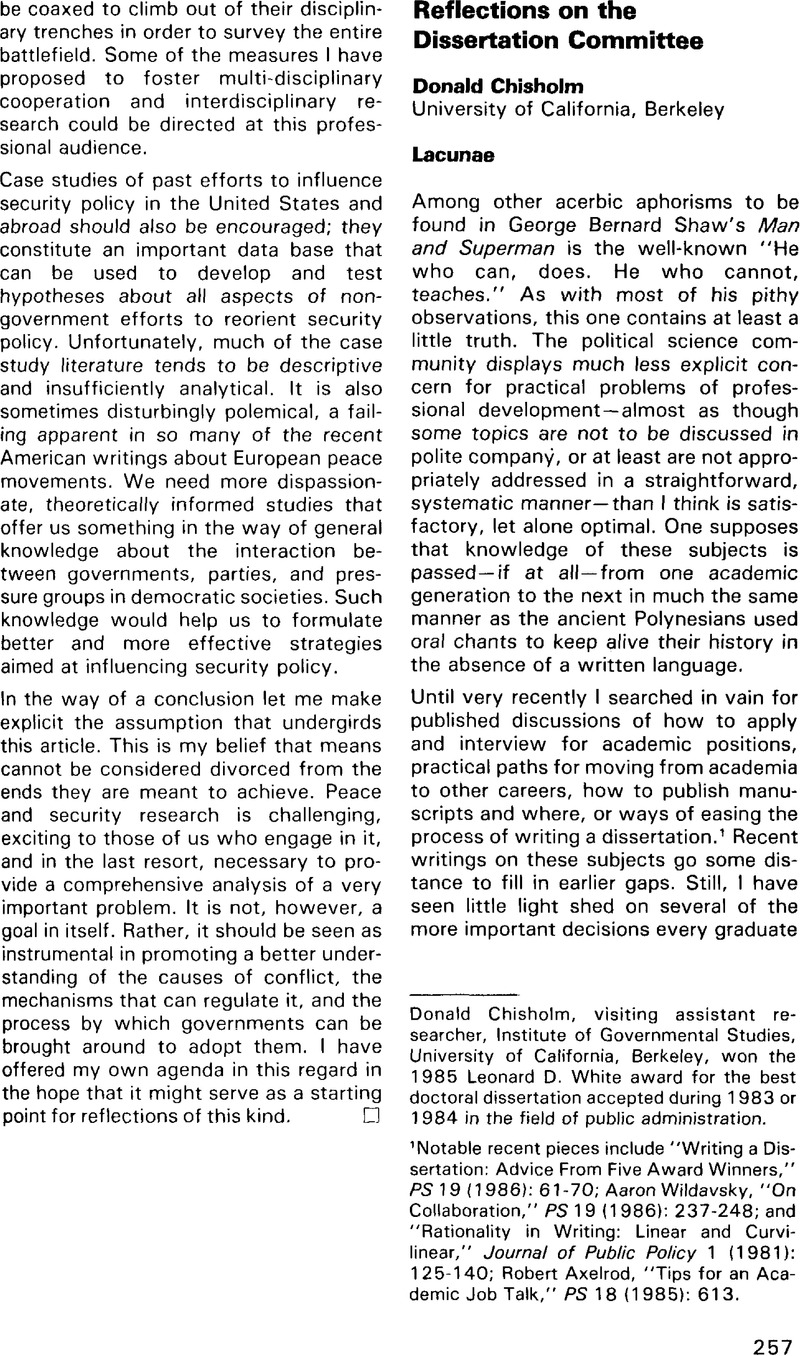No CrossRef data available.
Published online by Cambridge University Press: 21 November 2022

1 Notable recent pieces include “Writing a Dissertation: Advice From Five Award Winners,” PS 19 (1986): 61–70; Wildavsky, Aaron, “On Collaboration,” PS 19 (1986): 237–248 CrossRefGoogle Scholar; and “Rationality in Writing: Linear and Curvilinear,” Journal of Public Policy 1 (1981): 125–140; Axelrod, Robert, “Tips for an Academic Job Talk,” PS 18 (1985): 613.CrossRefGoogle Scholar
2 The impetus for this article came from a lengthy conversation several years ago with a colleague despondent over his choice of a dissertation committee. It struck me then that more careful thinking about that decision might have forestalled his difficulties, or at least minimized them. Writing this piece has also helped me make some sense of my own experience.
3 Of course, one way to avoid disappointment with your dissertation committee entirely is to follow the precept of a former colleague of mine: “I asked nothing of my committee, and in return it gave nothing.” All parties to this dissertation evidently came away satisfied with a job well done. I do not recommend this approach.
4 My committee was comprised of Martin Landau (Chairman) and Nelson Polsby, both of the political science department, and Melvin Webber of city and regional planning.
5 It was Nelson who suggested I read the essays of E. B. White so that I might see and perhaps absorb a very polished and beautiful style of prose.
6 Space precludes me from discussing this point more fully here, but I have in progress another piece on the placement process which addresses it in some detail.
7 “On Writing a Dissertation,” PS 19 (1986): 65–69.